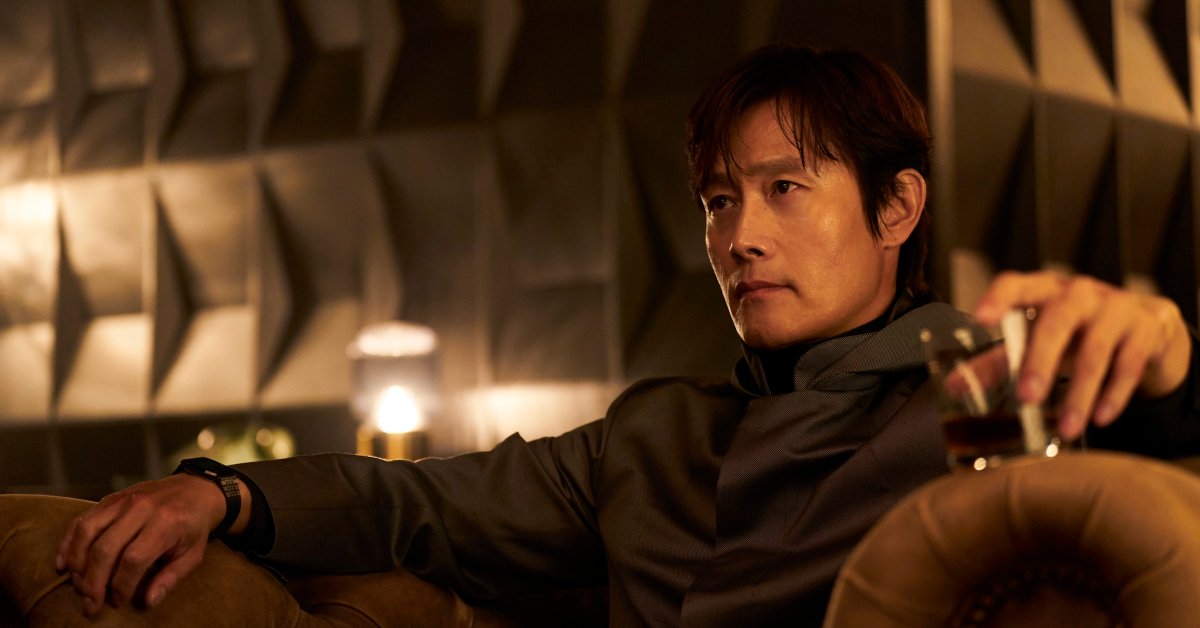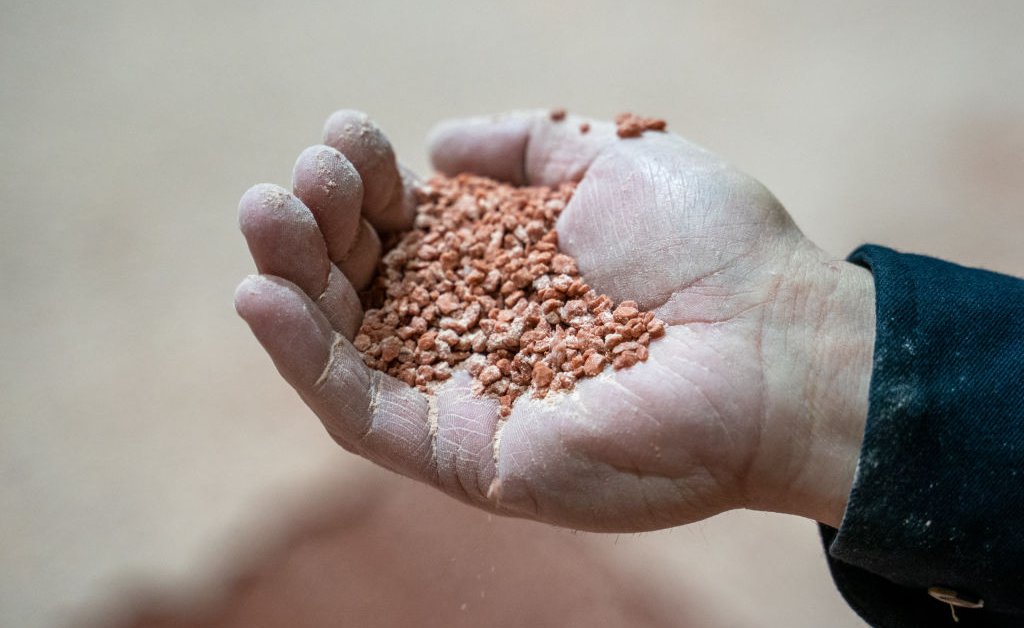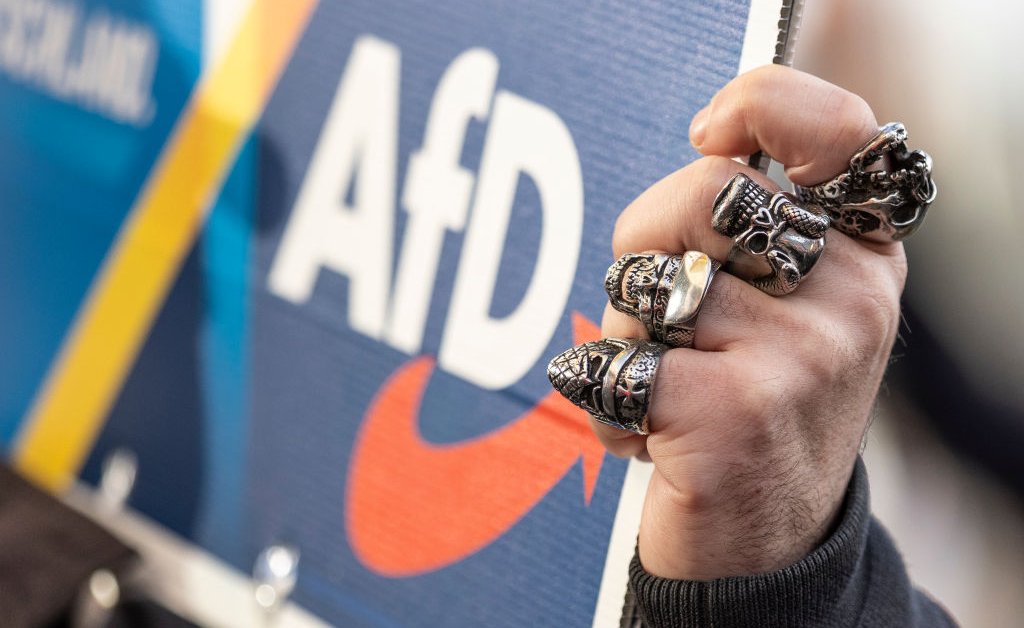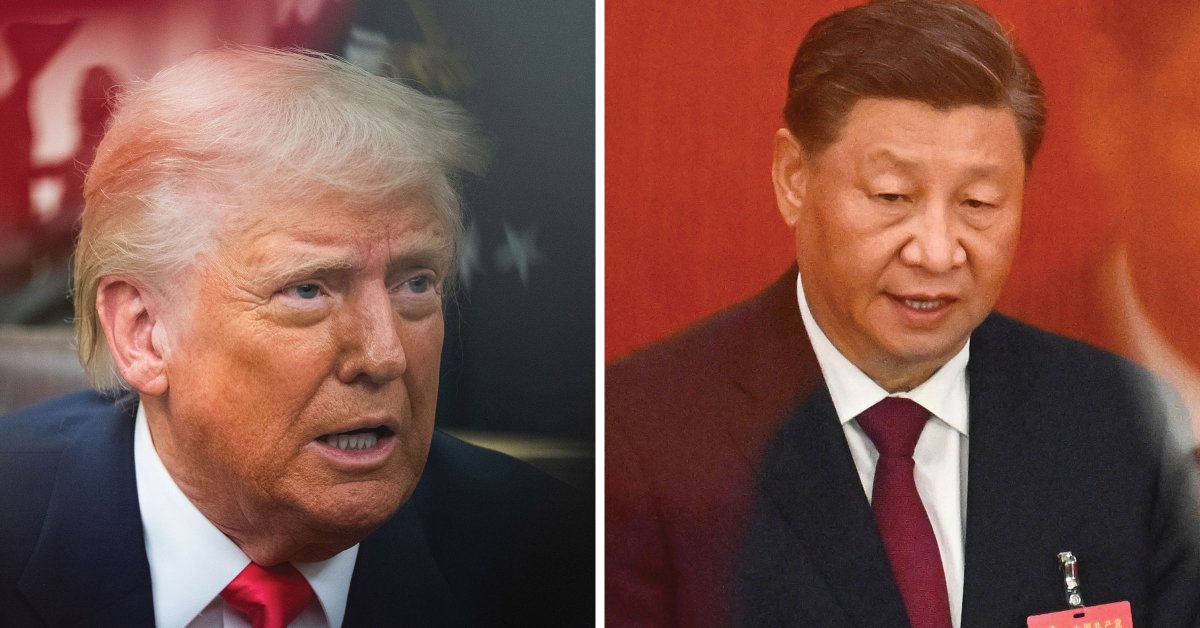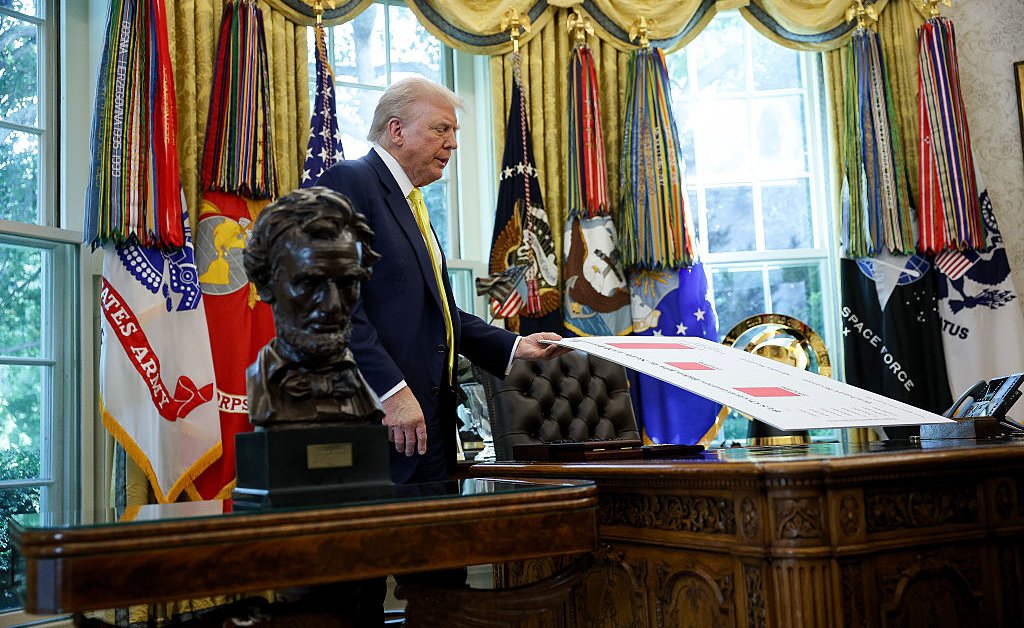Squid Game mostly follows its desperate contestants: members of the poor and working class who opt into a series of deadly games for a slim chance at getting out from under capitalism’s boot. While the most cutthroat of these Player characters can become targets of audience ire, Hwang Dong-hyuk’s mirror for late-stage capitalism makes it clear where the blame for bloodshed truly lies: with a cabal of uber-wealthy people, known as the VIPs. First introduced in the seventh episode of Season 1, aptly titled “V.I.P.S,” this group is made up of six disgustingly rich English-speaking men, who watch the Game’s final rounds in person.
The first season VIPs were described to the actors hired to portray them as “total idiots” and “dirtbag millionaires,” and the characters live up to those descriptions. The mask-wearing egotists are pampered at every turn by the Front Man (Lee Byung-hun) and the Game’s workers as they bet on the Players’ lives like they are horses in a race. The VIPs are led by Oh Il-nam, who earned his own massive fortune as a moneylender. In Season 1, Oh Il-nam enters himself in the Game as Player 001 as a way to pass the time while he dies from a terminal illness. On his comfy deathbed, Oh Il-nam tells Gi-hun (Lee Jung-jae) that he originally pitched the idea of the Game because he was bored.
In Season 3, which brings Squid Game to an end on June 27, the VIPs take on a more significant role as their moral degradation reaches new lows. “They take their masks off and go into the game and kill others with their own hands,” Hwang tells TIME, through an interpreter, referring to the characters’ arrival in Episode 3. This time, they temporarily trade their dinner dress and opulent animal masks for the soldiers’ signature pink suits and black masks, and swap their champagne glasses for machine guns to hunt down and kill the round’s “losers” themselves. Unlike Season 1, this group of VIPs are not afraid to unmask themselves and reveal their identities.
For the Squid Game creator, the VIPs’ more active Season 3 role stems from his real-world observations. “In the past, those that really controlled the system and maintained power, they were hidden behind the curtain, almost like this big unseen conspiracy. However, it’s no longer the case, especially in America,” Hwang says. “We talk a lot about oligarchy these days, but these so-called big tech owners, they step up, telling everyone who they’re backing with their money. The people who really control the power and the system, they no longer hide behind a curtain. They willingly take their masks off, almost as if to declare, ‘We’re the ones running everything. We’re the ones in control.’”
In 2020, when the first season of Squid Game was filmed, the world had about 2,000 billionaires, worth roughly $8 trillion. In 2025, that number has risen to over 3,000, worth over $16 trillion. (For reference, one million seconds is about 11.5 days, while one billion seconds is about 31.5 years.) Collectively, these billionaire humans have more wealth than the GDP of any country in the world, save for the U.S. or China. Elon Musk’s current net worth of $412 billion is bigger than the GDPs of all but 24 countries, including Denmark, Iran, and Malaysia. The lavish Venice wedding of Jeff Bezos, the fourth-richest person in the world, is set to take place the same weekend as Squid Game Season 3’s release on Netflix. The private event costs at least an estimated $46 million and has reportedly necessitated the use of around 90 private jets for the transport of its guests.
While Hwang didn’t base Squid Game’s VIP characters on any real people, that doesn’t mean they don’t resemble members of the increasingly powerful billionaire class. After finishing Season 1, Hwang noted that one of the VIPs unintentionally resembled Donald Trump, the richest person to ever be president of the United States. A similar realization happened after crafting Season 3. “Elon Musk is everywhere these days, right?” notes Hwang, of the world’s richest person and Trump’s top campaign donor. “Everybody talks about him. Not only is he the head of a huge tech company that controls the world almost, but he’s also this showman. After writing [Season 3], of course I thought, ‘Oh, some of the VIPs do kind of resemble Elon Musk.’”
How real-world political polarization inspired Squid Game Season 3
In a better reality, Hwang would have less inspiration for Squid Game. The series was famously inspired by the director’s own struggles following the 2008 financial crisis, and the broader infrastructure of growing wealth inequality: the cryptocurrency boom, the rise of tech giants, and Donald Trump’s first presidency.
Since the release of Squid Game’s first season, things have arguably gotten worse. The consolidation of wealth amongst a miniscule fraction of the Earth’s population continues, contributing to the conditions for the global rise of facism. “All around the world, including in European countries, we see extreme right-wing [movements] taking power,” says Hwang. “We see a continued divide due to political views. In Korea recently, we had former president Yoon [Suk-yeol] declare martial law. He was impeached, but there are very strong, extreme supporters who believe that all of our elections have been rigged. All of these things are leading to exacerbated social conflict and division.”
Hwang was also shaken by the deadly events of January 6, 2021, which saw a mob of Trump supporters storm the Capital following the president’s loss in the 2020 election. The insurrection was egged on by Trump himself. “America is known for its liberal democracy,” he says, “and to see just how intense of a divide elections and voting and political views can put people in… that was very shocking, honestly, so that was also part of the current events that inspired me.”
We see this theme of global polarization explored in Squid Game through a ramping up of the in-Game voting process in Seasons 2 and 3. Between every round, the surviving Players cast their votes. Those who vote “X” want the Game to end, and for the remaining Players to divide the accumulated prize money equally. Those who vote “O” want to keep playing. In Squid Game, the limits of voting and democracy within a society of such extreme inequality are made clear, as the terms have been set by those in power. The set-up encourages two factions who increasingly dislike and fear one another. The Players are left to fight among themselves, while ignoring the VIPs who enjoy unfettered luxury without having to ever “play” at all.
In the season’s penultimate episode, during the Game’s final round, the surviving contestants take a vote on which Player to kill next. Their options include a baby, whom they see as an easy target. “Let’s vote on who should get eliminated, and keep it democratic,” one Player says to another, as if they are not talking about murder.
“In the past, through elections, while there were obviously always conflicts based on your political views, at least we all looked at one future together and we had a certain level of tolerance,” says Hwang. “I don’t think that is the case anymore. We no longer think that our views are different. We think that the other view is wrong, and only my view is right. Seeing all of these things happen around the world and in a world where so much of our news and our so-called knowledge is based on algorithms and AI-generated news, I thought that it is time for us to beg the question: Are elections still a very effective system?”

